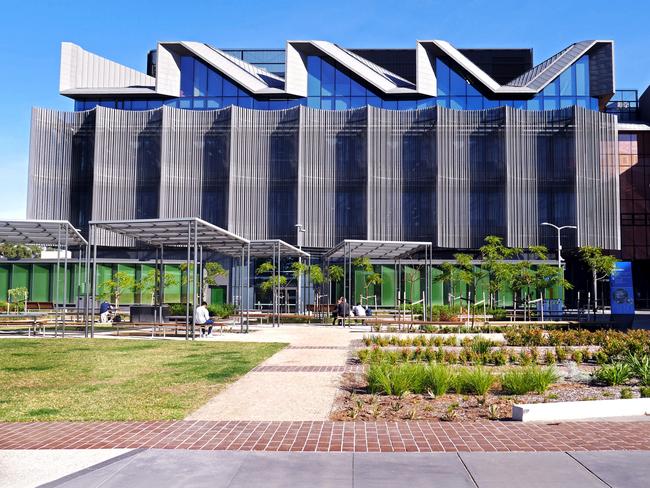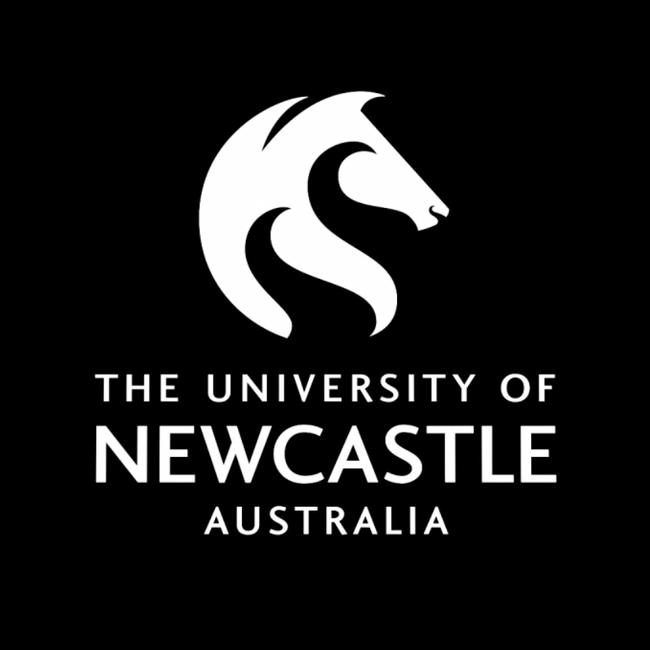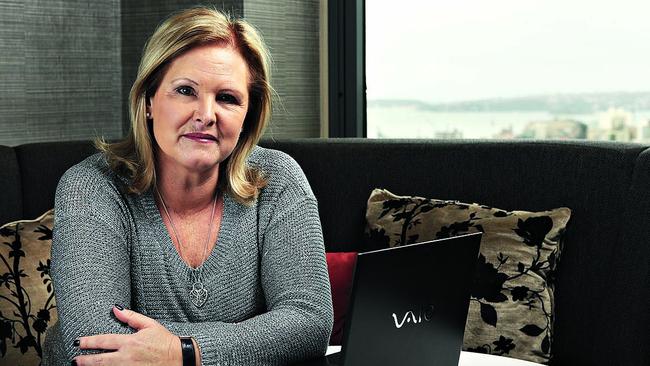Monash University and Harvard to join forces to use phone app to watch Aussie students’ sleep, alcohol, substance use
Student sleep, activity levels, alcohol and drug use could be monitored through a new phone app an Australian university will deploy. But it has privacy experts concerned.
An Australian university will be tracking students’ mental health by monitoring sleep and activity levels through a new sophisticated smartphone app, and even capturing information about alcohol and substance use and location.
The move is concerning privacy experts who say Big Brother surveillance tactics could harm future job prospects, private health insurance premiums and be vulnerable to data breaches.
Monash University is partnering with prestigious US university Harvard on the Australian-first Thrive app that is designed to monitor the mental health of students.
The developers are planning the app will eventually be used across all Monash University campuses in Australia and overseas and also rolled out to other universities across Australia.


It comes just days after University of Newcastle revealed it would track student attendance through phone data and last year China was suspected of a state of the art hack into student information at Australian National University.

Dr Nick Patterson, Senior Lecturer in Information Technology at Deakin University said cyber security battle is “an ongoing war,” and there have been a number of incidents across the world, including the ANU case, where data has been stolen.
“While we hope both staff and student’s data is kept safe within the University environments, it has been demonstrated that this is not the case again and again,” he said.
“The implications could be very troublesome for aspiring graduates, when it comes to employability, if sensitive details around their mental health, or for instance alcohol use or lack of sleep, is exposed to potential employers.”
But Professor Kim Cornish said the voluntary app is urgently needed as “there is a mental health crisis facing the university sector in Australia.”
She said the trend for students requiring in-house counselling and mental health services has risen sharply since 2015 and there has been a 20 per cent increase in the last two years alone.
“Mental health issues, like anxiety, depression, self-harm, substance abuse are increasing among students with an exponential rise in counselling services and visits to Emergency Departments,” she said.

Professor Cornish said competitive education, unpredictable jobs markets and parent expectation had made modern university life more stressful for students.
She said the Thrive app will use sophisticated technology with sensors and pop-up questions to help students monitor how they are feeling and prompt early intervention if needed.
“The days where you came and did your studies, had the time of your life and then got a job are gone. Students are now coming from a very competitive high school environment into a world of many uncertainties,” she said.
“This is a tool that will help students to understand when their drug and alcohol use and mental health problems reaches a point when they should be seeking help. The tool plays a critical role in guiding students to seek psychological help early before these problems get out of control,” she said.
“It is a template that could roll out across the Australian university and college sector.”
Professor Cornish said she is working closely with experts in law and data security to ensure privacy and confidentiality.
“This project will give rise to a massive dataset that will be used to develop new analytical methods in digital health. This will form the basis of new digital apps to help students be mentally strong throughout their time at university and beyond.”
Monash student Catherine Brown, 25, is also helping build the app and said there was a need for personalised services that could improve mental health.
“It is a tailored approach that can help track and monitor our own thoughts and feelings. By using GPS location or social media use it can use a whole range of indices that you can get from meta data that might indicate risk factors for mental health.”
She said some students might be hesitant about sharing sensitive data but that they would be fully informed.
MORE NEWS
Shock graph reveals where Aussie students are heading
Why children of the future must be ‘indistractable’
Calls to scrap ‘pointless’ school report cards
Why our schools are falling behind

Cyber security expert Susan McLean said students need to be asking questions around where the data is stored, who has access to it and how it will be used.
“Like any health information it has the potential to be used negatively. What if your lecturers saw it? What if it was hacked and posted online?” she said.
“Society as a whole is blase about this.”
Dr Bernard Robertson-Dunn, Chair, Health Committee, Australian Privacy Foundation, said he had similar concerns to the app as he did regarding the federal government’s My Health Record.
“The problem with all this health stuff people make claims as to the benefits but never to seem to say anything about potential costs and downsides,” he said
University of South Australia’s Jamie Manolev said from a student perspective participants need to be aware of the long term implications.
“This is information that is usually exchanged between patient and medical professionals and subject to strict confidentiality, so as soon as you go outside that there is increased risk of exposure.
“If it does get out into the public sphere what comes to mind for me is insurance, employment sector using the data for their benefits and not necessarily in the interest of individuals.
“There is obviously a place for this as mental health is such an important issue but it needs to be very carefully considered.”
Originally published as Monash University and Harvard to join forces to use phone app to watch Aussie students’ sleep, alcohol, substance use
